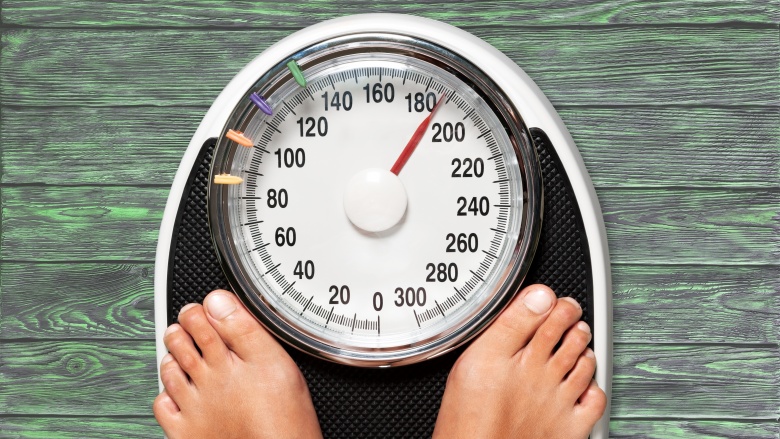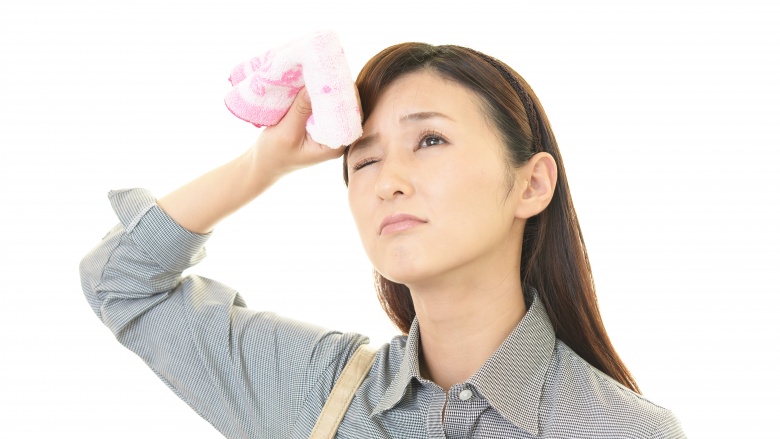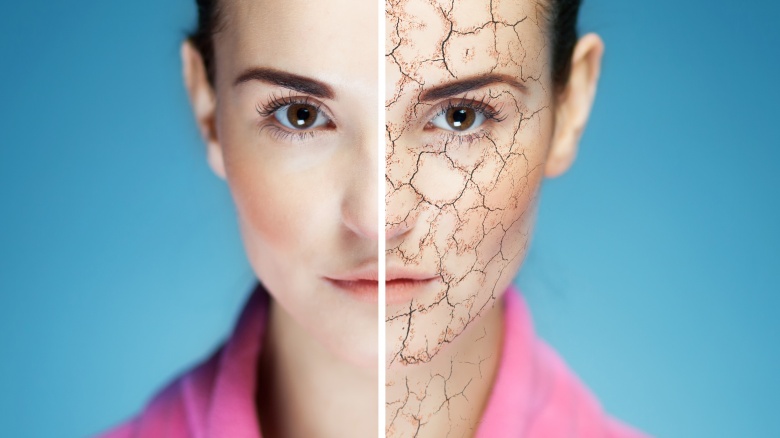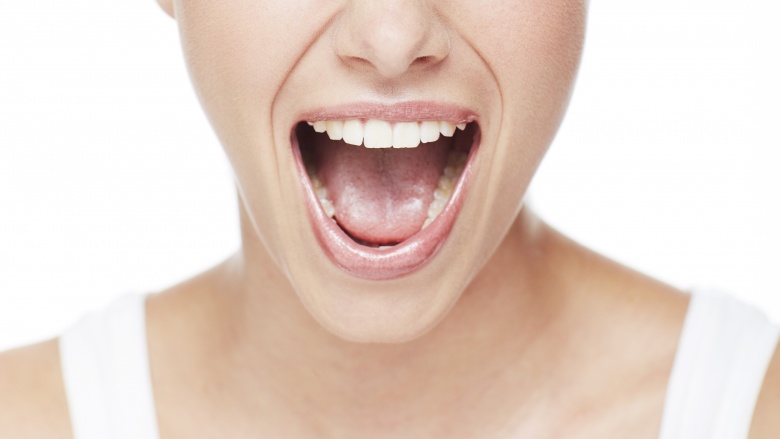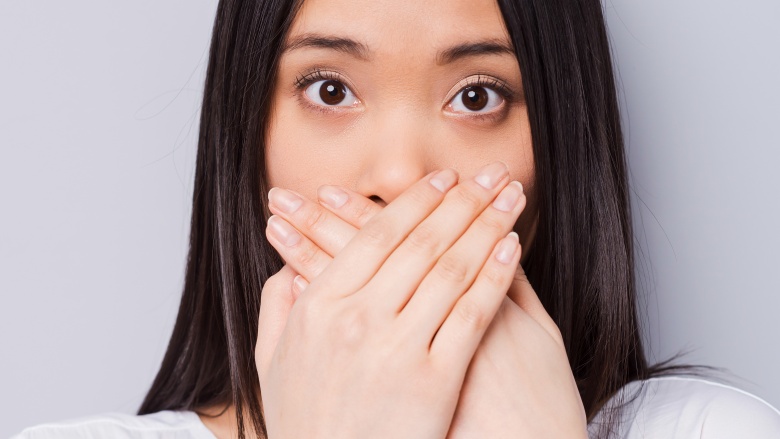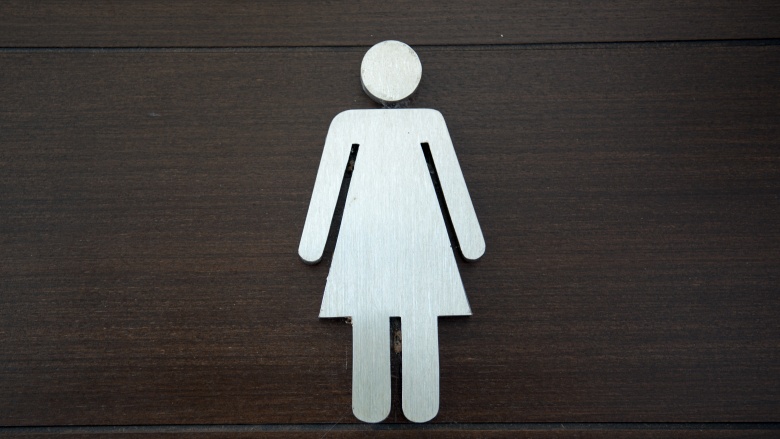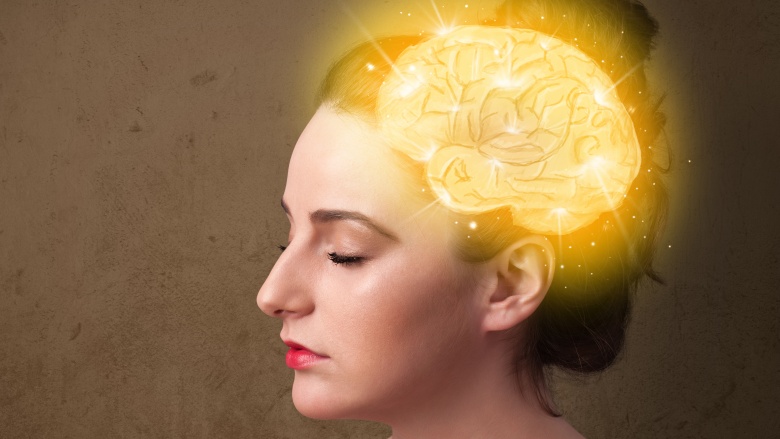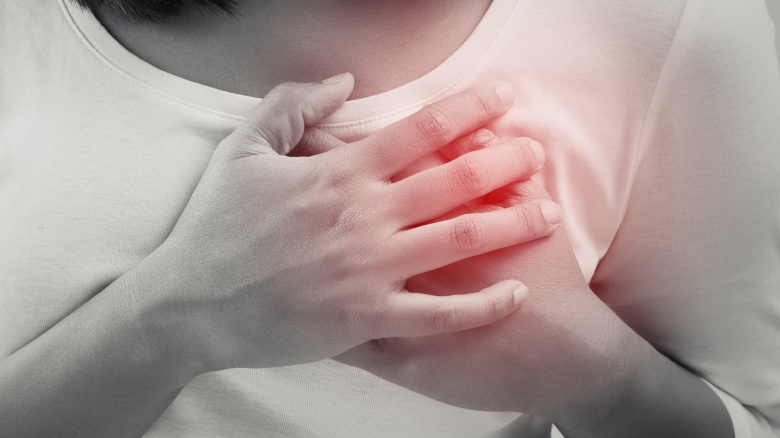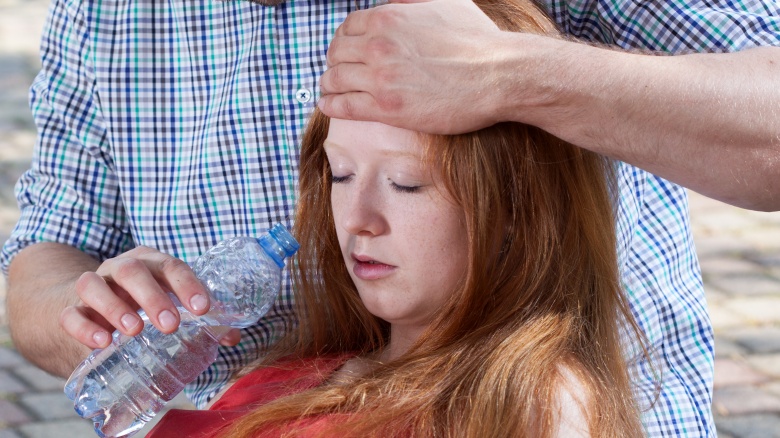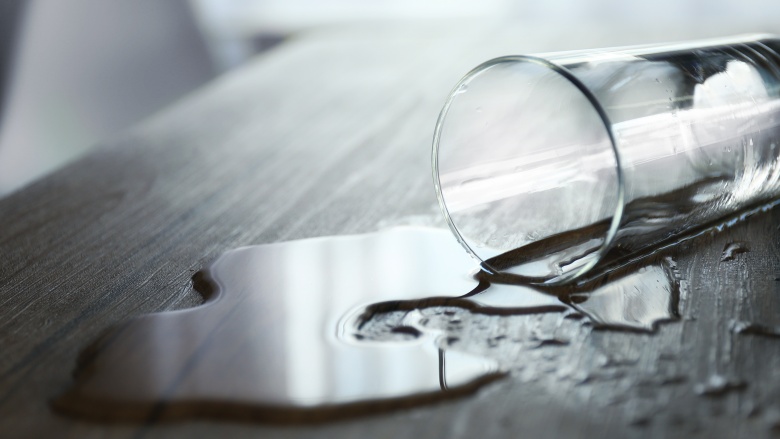What Really Happens To Your Body When You're Dehydrated
You are as much as 60 percent water, but if you're like most people, you're too preoccupied to properly hydrate. That's bad. In the right circumstances, it can even be deadly. When your body gets dehydrated, it can experience a series of changes ranging from annoying to downright frightening. If you're neglecting your body's hydration needs, these 11 symptoms may send you running for the nearest water bottle.
Temporary weight loss
Sometimes sweat happens purposely, through exercise. Sometimes, its a result of stress or high heat. No matter how it happens, if you don't replace the water you lose through sweat, temporary weight loss may occur. Sure, this may sound exciting to dieters, but this type of weight loss is not permanent. Your body will only put the weight back on once you're properly hydrated.
But what happens to your body when you no longer have enough water to sweat?
Your body can't control its internal temperatures
Sweat may feel icky, but it has a very important purpose. Sweat is our body's way of regulating it's temperature and removing toxins and other unwanted compounds through the skin. When you're too dehydrated to sweat, your body can't cool down — in fact, your internal temperatures may continue to rise. If that happens, serious conditions like heat illness may occur.
Your skin looks dry and dull
When you're dehydrated, you can force your body to make some very tough decisions, such as pulling moisture from "low priority" areas to protect vital functions. ABC News' chief health and medical editor, Dr. Richard Besser explained to Good Morning America, "If you get dehydrated, your body is going to pull water from your tissues, from your skin to maintain the concentration in your blood." Besser shared that when this happens, it leaves the skin drier and less elastic.
While some have claimed that drinking excessive amounts of water will take years off your face, Dr. Besser wasn't convinced. "If you're not dehydrated and you drink a lot of water, it's just going to send you to the bathroom."
You get a dry mouth and throat
Want to feel like you're carrying around the Sahara Desert in your mouth? Cut back on your water consumption! A very common side effect of dehydration is a dry mouth. What that means is that water levels in the body are so low, your salivary glands can't produce enough saliva. While the process may sound gross, it's necessary for food digestion and for avoiding bacteria build-up — which can lead to another, more embarrassing problem.
You get bad breath
Dehydration can lead to an excessive amount of bacteria in the mouth, which can lead to halitosis — also known as bad breath. Bad breath usually leads to...embarrassing situations. Often we think of proper oral hygiene as regularly brushing our teeth, flossing, and using mouth wash. However, drinking plenty of water as to give your salivatory glands a chance is also important to a healthy (and inoffensive) mouth.
You urinate less frequently
If you have the slightest inkling how your tinkling works, then a notable decrease in urine when you're dehydrated shouldn't be too surprising. When you do pee, your body will try to tell you via the color of the liquid just how dehydrated you really are. Ideally, you'll want urine that's a pale, almost transparent shade of yellow. If your urine is notably dark yellow it could mean you're slightly dehydrated. Orange or maple-colored urine often mean you're very dehydrated.
You shouldn't take this symptom lightly. The less you urinate, the more toxins avoid being properly flushed out of the body — and that's never a good thing
It can affect your mood
Feeling a bit moody? Well according to a University of Connecticut study, even mild dehydration can alter your mood and thinking. Mild dehydration is a 1.5 percent loss in the body's water volume. That might not sound like much, but researchers found that even being slightly off your proper hydration levels will affect a "person's mood, energy level, and ability to think clearly."
Just think about the terrible life decisions you could make simply because you passed on drinking a few bottles of water!
Your brain gets smaller
In addition to altering your mood, improper hydration may also physically alter your brain. Researchers have found that dehydration can affect the volume of brain structures, as well as shrinkage of brain tissue. It's very creepy to think that forgetting to re-hydrate the body can have such a huge impact, not only on your mood and thinking...but also on your actual brain.
You put a strain on your heart
Researchers at Loma Linda University made a startling discovery in the 1970s. Dr. J. Chan, the chief researcher, revealed that proper hydration reduced the risk of a heart attack by as much as "54 percent in men and 41 percent in women." And that was by drinking five glasses per day — a little lower than what you usually hear recommended. We don't often think of water as being crucial to proper heart function, but it is.
Dr. Chan stated that plain water, rather than other flavored beverages, tended to be absorbed "quickly into the blood to prevent artery clogging clots." When you're dehydrated, the body pulls water from the blood stream to aid in digestion processes than leaves the blood thicker, and more difficult for the heart to pump.
The longer and harder the heart has to work to pump blood, the greater the risk of suffering a potentially fatal heart attack or stroke.
You can pass out
When you're feeling light-headed and disoriented due to dehydration that isn't taken care of, what usually follows is your body's sudden urge to be as close to the ground as possible — also known as fainting. When you become dangerously dehydrated, your body can experience a massive blood pressure drop. When that happens, it also means not enough oxygen-rich blood is getting to your brain, hence your loss of consciousness.
Eventually, you could die
Yes, it's possible to become so dehydrated that it can literally kill you. If you become extremely dehydrated and don't find a way to take in water, fast, it can shut down completely.
This is easily avoidable in healthy people, as your body tends to give off a series of clues — as listed above — that you need water. Simply keep a close eye on your hydration, and you shouldn't have any serious problems.
Staying hydrated will make your healthier and happier
To avoid all of the troublesome symptoms on this list, it's really as easy as making sure you're getting the proper amount of water your body needs. But how do you know how much is enough? The amount of water you need is different from person to person. Just make sure to always drink when you're thirsty, always drink before, during and after a workout, and make sure to keep a glass or bottle of water near you as a gentle reminder to sip.
Bottoms up, water drinkers!

